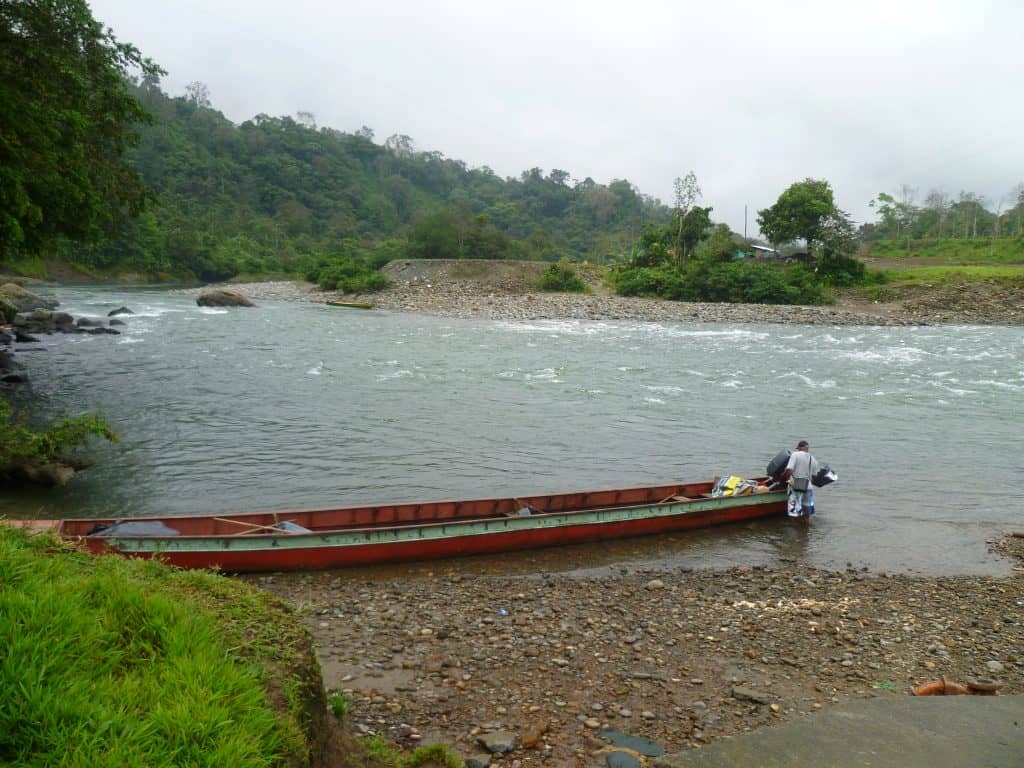
As the humanitarian crisis in the department of Chocó deepens, the Catholic Church continues to urge the Colombian government to acknowledge the severity of the situation in the region as reported by Humanitarian Missions of Verification in 2021. Since the findings of the report went public Colombian authorities, including Minister of Interior and the Minister of Defence, have rejected the information and a legal action (tutela) was taken out against the Bishop of Quibdó, Juan Carlos Barreto Barreto. Governmental pressure has increased against Bishop Barreto including a demand that he retracts the denouncements regarding collusion between the Security Forces and the illegal armed groups. The need for dialogue between the government, the Catholic Church leaders and local communities is now urgent as the situation in Chocó worsens. Monsignor Juan Carlos Barreto Barreto stated that the Catholic Church's Humanitarian Missions of Verification (five in Chocó and one in Antioquia) in 2021, revealed an appalling humanitarian crisis, along with collusion between the Security Forces and the illegal armed groups such as the Autodefensas Gaitanistas de Colombia (AGC) and the Clan de Golfo. The Colombian Minister of the Interior, Daniel Palacios, said the humanitarian report was exaggerated and untrue. This response by the government denies the reality faced daily by many rural communities. As part of the governmental response, the Colombian state also filed a legal action (tutela) against the Monsignor Juan Carlos Barreto for alleging collusion between the Army and the paramilitary organisations. The Episcopal Conference of Colombia (CEC) strongly supported the findings in the report which denounced territorial control by illegal armed groups, selective assassinations, confinements, massive forced displacements, gender-based sexual violence, forced recruitment of minors, suicides —especially in the context of indigenous communities—, installation of antipersonnel mines, and armed confrontations between illegal armed groups like the ELN guerrilla and the paramilitary groups, amongst other things. The Ombudsman's office (Defensoría) issued an alert, as far back as September 2021, stating that 72% of the population of the department of Chocó was at risk of violence, by February 2022 the Defensoría stated it had risen to 77%. During a press conference in Quibdó, Monsignor Aparicio insisted on the reality of the humanitarian crisis in Chocó. "First, there is a humanitarian crisis in Chocó […] Second, the bishops of Chocó… social organisations, and the media, have been denouncing what is really happening. They are not exaggerating, and they are not lying". Monsignor Aparicio’s words came in response to the recent declarations from the Colombian government denying the humanitarian crisis in Chocó and the Minister of the Interior stating the report was exaggerated and untrue. The humanitarian crisis in Chocó has been repeatedly denounced with the Bishop and social organisations calling on the Colombian Government at the highest level to meet. The objective of requesting a meeting was to present the findings of humanitarian missions during 2021 and to discuss the grave situation in the territory. However, they have received no positive response from the government. The Humanitarian Missions spent time in the municipalities documenting the evidence showing the impact of the confrontations between the illegal armed groups, for territorial control and control of the lucrative illicit economies (mainly coca and gold mining), along with the coexistence between the security forces and illegal armed groups. “One understands that the armed groups may be in remote areas ... But, unfortunately here [in Chocó] these illegal armed groups move about very calmly, and in areas where the… security forces are present." Explained Monsignor Juan Carlos Barreto. The answer in Chocó is not further militarisation of the territory, there are deep rooted underlying social problems related to extreme levels of poverty (69 percent of Chocoanos live in poverty) it is also an area with the highest unemployment rate in the country, the highest rate of illiteracy and its capital, Quibdó, has the highest homicide rate highest in Colombia, four and five times above the national average, according to Bishop Barreto. While communications between the government and church representatives in Chocó are at a standstill, the Catholic Church continues to call for dialogue. If the humanitarian crisis in Chocó and the collusion between the security forces and the illegal armed groups is to be addressed then it is essential that there is an open dialogue between the Colombian Government, the bishops in Chocó, the Episcopal Conference and the social and ethnic organisations, where communities can be listened to, and solutions found.
